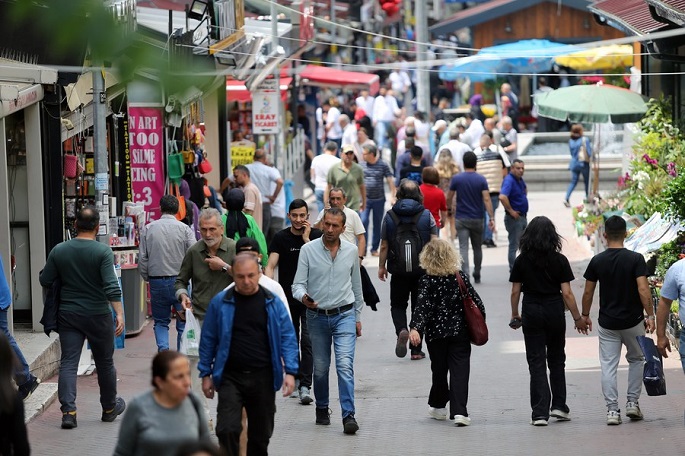Price rises, tax hikes make Turks feel worse-off
Published : 15 Jul 2023, 00:10
Turkish consumers are facing a new wave of stinging price increases and tax hikes as the value of the national currency continues dipping against the background of a cost-of-living crisis.
"Life is expensive here, and it is impossible to make ends meet in Turkey anymore, even though three members of my family are working hard to pay the household expenses," said Jale Tasiyan, a 46-year-old hotel employee.
Tasiyan told Xinhua that because of a significant decline in the family's purchasing power, even a cup of coffee that she used to have in a cafe could be a luxury for her now, adding that she has to take a second job in a restaurant to help support the family.
She lamented that the rising hotel prices spoiled her family's beach holiday plans, and they have to stay home this summer instead.
In early July, the Turkish government increased the value-added tax on goods and services to 20 percent from 18 percent, making Turkish people's life even more costly amid high inflation.
Under the substantial tax hikes, taxes on registering new mobile phones in Turkey have more than tripled, promoting thousands of Turks to rush to neighboring Georgia to buy smartphones and register them before the tax hikes took effect on Monday, local media reported.
The moves came after the introduction of a draft law in the parliament last week that envisages increasing corporate tax to 25 percent from 20 percent for quake-related funding. The government said rebuilding projects would cost an estimated 100 billion U.S. dollars.
The country's annual inflation rate dipped to 38.21 percent in June from a peak of 85 percent in October 2022, according to figures released by the Turkish Statistical Institute on July 5. However, consumers have remained highly price-sensitive.
To ease the burden of households, the government introduced salary hikes for 4 million civil servants and pension hikes for more than 15 million retirees in July while increasing the minimum wage by 34 percent in late June for low-income workers.
These measures were in line with President Recep Tayyip Erdogan's promise to address the cost-of-living crisis in the country after he won re-election in May.
However, the continuing depreciation of the Turkish lira against foreign currency has eroded the government's efforts. In just two weeks, the minimum living wage decreased by about 40 dollars before civilians benefited from minimum salary increases beginning on June 1.
There are also concerns that wage hikes could inadvertently cause higher inflation.
Since the start of the year, the Turkish lira has lost more than 30 percent of its value, leading to a price surge in exported goods, especially food, in the import-reliant country.
In addition, high rents have burdened students who were to enter society after graduation. Murat Kocas, a student in his last year at Ankara University, told Xinhua that housing has become a pressing issue for him.
"I am staying in a student dormitory, but its price has tripled. I was thinking of renting a house, but rents have risen sharply, which is also unaffordable for me," Kocas said.
According to Enver Erkan, chief economist at Istanbul's Dinamik Investment Securities, inflation may gain momentum in the second half of the year.
"The budget deficit may have an upward effect on inflation in the second half of the year through the government's tax and price policies," Erkan said.


